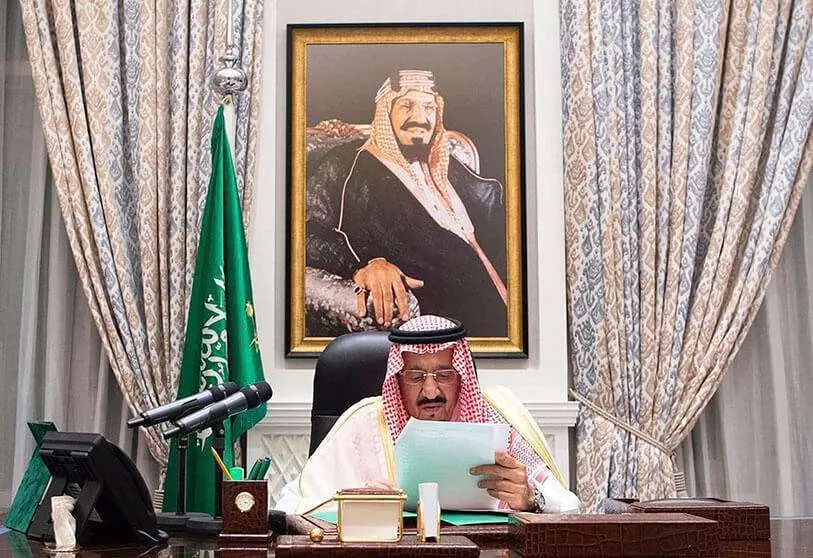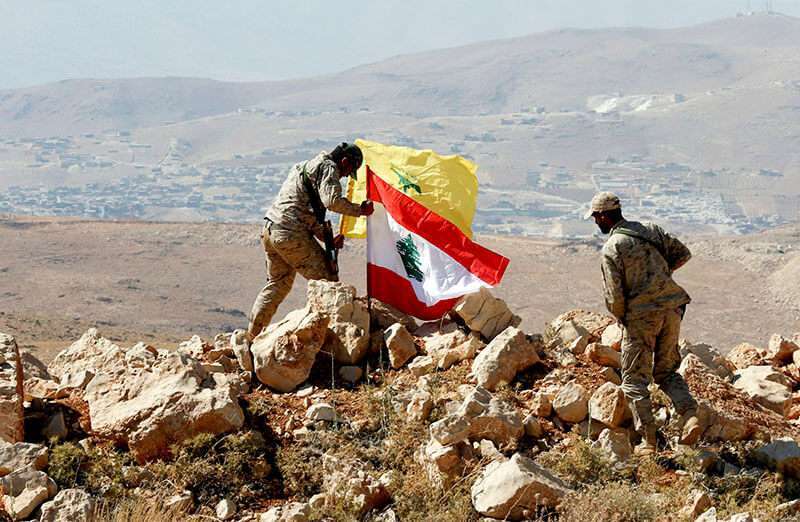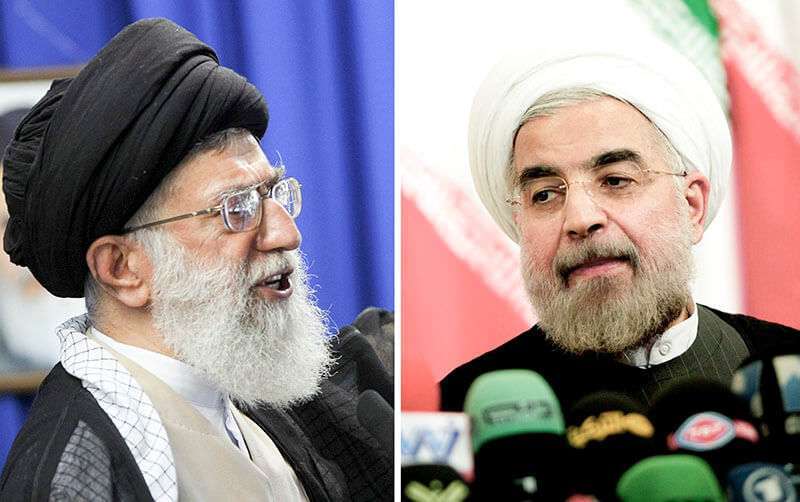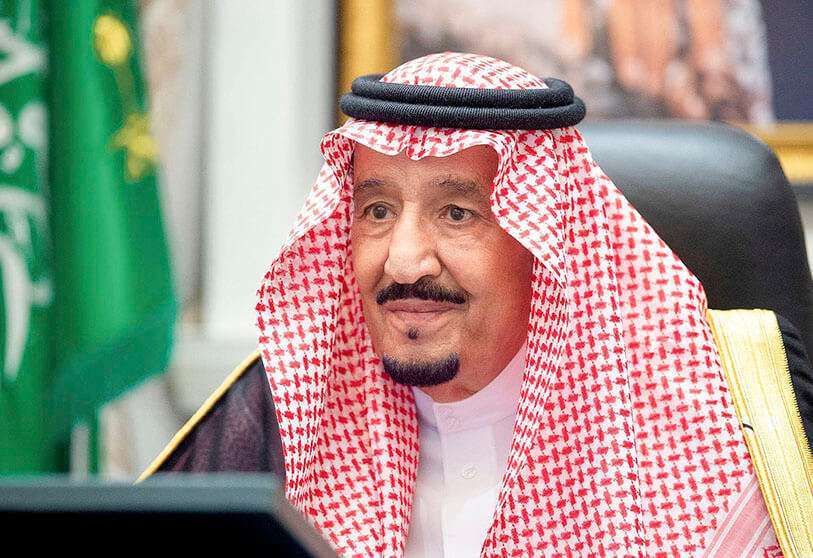Salman calls for international action to deter Iran

Iran and Saudi Arabia are historical enemies. Some explain this clash by going back to the death of Mohammed, when his disciples divided the way Islam was understood in two (Shiites and Sunnis). Others refer to the confrontation between the Ottoman-Safaviad empires (16th century) and the Ottoman-Persian struggle (18th century). During the colonial period Saudi Arabia did not suffer any occupation, but Iran was led by the United Kingdom and France jointly.
The hegemony of the Middle East hangs in the balance between these two great countries, which have always seen each other as bitter enemies. This has been reflected in the 21st century by King Salman bin Abdulaziz, monarch of the Arab country, who focused his address on the 75th anniversary of the UN General Assembly almost entirely against Iran.
He first called on all countries to consider "firmly opposing" countries that support transnational extremist ideologies. This refers to the relationship between Iran and Hezbollah, a Lebanese Shiite political organisation, which is considered a terrorist organisation by several countries. He also warned of the Iranian Revolutionary Guard which, according to the Saudi monarch, trains different terrorist groups such as al-Qaeda in India, Iraq, Kenya and Syria and the Hutids in Yemen.
Iran has also been accused of financing other terrorist groups such as the Taliban in Afghanistan. Its intelligence services are also accused of provoking several cyber-attacks within the United States. "These ideologies often seek to cover up their extremism and destructive nature with false political slogans," Salman reiterated.
Alluding to the ideological confrontation, he added that "in the [Saudi] Kingdom, based on our position in the Islamic world, we assume a special and historical responsibility to protect our tolerant Islamic belief".

On the Iranian nuclear programme, King Salman has stressed that a firm international position is needed to prevent Iran from obtaining "weapons of mass destruction", alluding to George W. Bush's 2001 speech before invading Iraq.
The enrichment of Iranian uranium is a matter of international concern, particularly to the United States, which has stepped up sanctions against Iran after it withdrew from the Nuclear Pact of 2015. This agreement, signed by the UN Security Council, ratified the lifting of sanctions against Iran at the end of 2020. For the time being, the signatory countries are continuing to lift restrictions while the United States insists on continuing with the arms and economic embargo.
The figures of the World Nuclear Association (WNA) show that Iran's uranium enrichment data are well below the world average, particularly compared to the major powers on the UN Security Council. The WNA has drawn up a table of the 17 countries that have the most enriched uranium on their territory. This list includes Australia, Kazakhstan, Namibia, South Africa, China and Niger at the top of the list and at no time, not even at the end of the list, does Iran appear.
Even so, owing to its regional political hegemony, Saudi Arabia has stressed that "the Iranian regime does not care about the stability of the global economy", pointing out that on several occasions the Sunni kingdom has extended its hand to peace with Iran and has treated it positively for decades. "But our experiences with the Iranian regime have taught us that partial solutions do not stop its threats", the monarch reiterated.

As for the Yemeni issue, the monarch assured that he will not cease to defend his national security, nor will he abandon his neighbour until he regains full sovereignty and independence from Iranian hegemony, "we will continue to support the efforts of the UN envoy to Yemen".
Saudi Arabia decided to intervene militarily in the Yemeni war in 2015 with the famous "Operation Decisive Storm". This mission, which is still in force today, was launched to help President Abd Rabbuh Mansur al-Hadi, who was experiencing serious difficulties in defeating the Shiite Huthi rebels.
The conflict continues to be active today, affecting the Saudi Arabian kingdom more than ever, which last week suffered an attack with a shell within its borders in which five people were injured. "Hutu militias continue to attack civilians in Yemen and Saudi Arabia", he reiterated to remind his UN counterparts that the conflict continues and is being extrapolated from the Yemeni borders.
In 2019 there were several approaches to sign a ceasefire, but the rebels ended up breaking it because they did not agree with the peace talks. Meanwhile, the Yemeni population continues to suffer an unprecedented humanitarian crisis, with a crisis of famine, lack of water, increased violence and the new threat of the coronavirus.
The statements that everyone was waiting for arrived. The Saudi King's pronouncement on the Abraham Agreements had many Muslims worried about the Middle East conflict on edge.
The monarch declared that he supported all efforts to complete an Arab peace process. In particular, he said that "peace in the Middle East is our strategic choice, and it is our duty to spare no effort to work together towards a bright future in which peace, stability, prosperity and coexistence among all the peoples of the region will prevail".
Without wishing to leave the Palestinian people behind, King Salman explained that "the Arab Peace Initiative has included a basis for a comprehensive and just solution to the Arab-Israeli conflict" and assures that "the brotherly Palestinian people will obtain their legitimate rights, the most important of which is the establishment of their independent state with East Jerusalem as its capital".
These words repeat the same speech made by the Emirates' minister of state and foreign affairs, Anwar Mohammed Gargash, a few days before the signing. This is a paper noted by Israel, Bahrain and the Emirates where there is no direct reference to the Middle East conflict.
Nor did he wish to miss the opportunity to thank the United States for its support and efforts to bring this pact to fruition.

With regard to the crisis in Libya, King Salman calls on "all Libyan brothers to sit at the negotiating table and unite to preserve the unity and integrity of Libya". These statements came with a warning in which he condemned foreign interference in the country, thus rejecting his support for Sarraj supported by the United Nations, Italy, Turkey, Qatar and the Muslim Brothers.
Another war flooded with foreign influence is that of Syria. The Saudi monarch reiterated that they needed to find "a peaceful solution with the departure of the militias and mercenaries and the preservation of the unity of Syrian soil".
As for Lebanon, the monarch recognised that the Lebanese people "have been subjected to a humanitarian catastrophe following the explosion in the port of Beirut" and accused Hezbollah of all the country's ills: "this is the result of Hezbollah's domination, which has led to the disorganisation of the state's constitutional institutions". Finally, he also ended up calling for peace for the Lebanese people with security, stability and prosperity without the presence of the "terrorist party".
Nor did he wish to ignore the terrorist threat that is ravaging the Arabian peninsula and North Africa. "Terrorism and extremist ideology is a great challenge that confronts the whole world. In recent years we have achieved significant successes in confronting extremist organisations, including the defeat of Daesh's control of land in Iraq and Syria," the monarch explained.
Salman called for international unity against terrorism to stop these practices in their tracks. "To succeed in our battle against terrorism and extremism, we need to intensify our joint efforts and address this challenge in a comprehensive way that tackles the financing of terrorism and extremist ideology," he added.
He also called for peaceful coexistence and solidarity among countries and peoples of the world, stressing that Saudi Arabia does not discriminate in its humanitarian efforts on the basis of race or religion. The King of Saudi Arabia has reinforced his speech by calling for joint efforts to end the coronavirus pandemic. Also to combat climate change, poverty, organised crime and to achieve "a bright future in which generations live in security, stability and peace", the monarch concluded.








